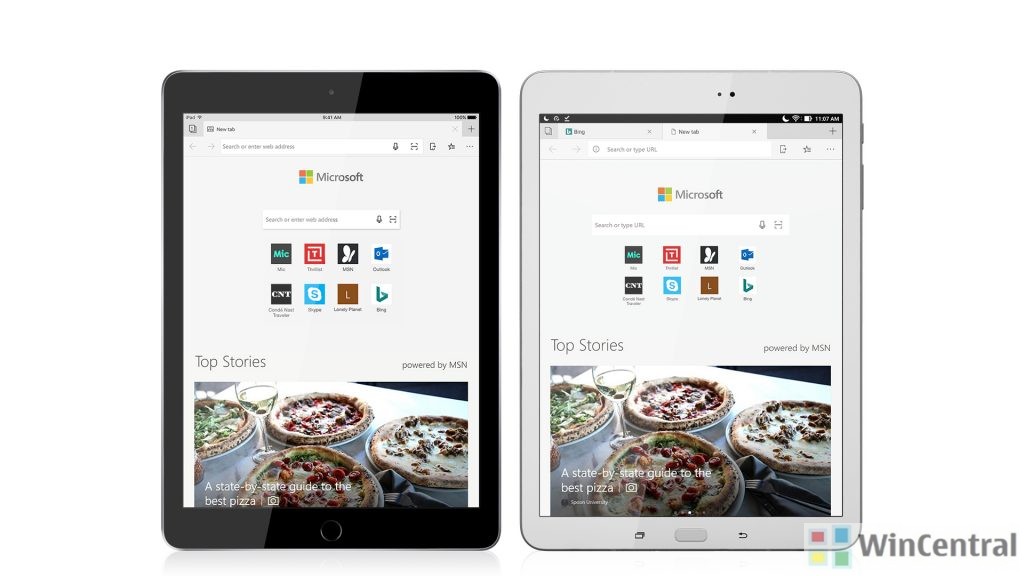
Google Begins Rolling Out Mobile-First Indexing In Search
Back in 2016, Google first detailed its plan to change the way its search index operates, explaining how its algorithms would eventually be shifted to use the mobile version of a website's content to index its pages, as well as to understand its structured data and to show snippets from the site in the Google search results. It saves all of its results in an index so when a user searches for something it knows what to give them because it has already processed the webpage.
Google announced this morning its "mobile -first" index of the web is now starting to roll out, after a year and a half of testing and experimentation. The initial plan for mobile-first indexing was announced almost two years ago and it looks like it has finally been brought to fruition.
Google Search's migration to mobile-first indexing will soon expand to more websites across the web, Google stated in a blog post today. This rollout is only for sites that "follow the best practices for mobile-first indexing", Google said. When a site has different versions for desktop and mobile browsers - and in particular when the mobile version is an impoverished version of the desktop site - mobile users can often be led to a page with less or worse content than the search result would have had them believe. Affected websites will not see their rankings change among searches conducted from desktop devices, game consoles, and other oddball fare, but mobile phones, tablets, and other types of devices that use a mobile processor and ask for a mobile interface on the web will start seeing these sites above other comparable results that are not deemed to be mobile-friendly.
But Google has also warned that having a mobile-friendly version of the original desktop site is not enough. The idea behind it is to give users the best experience when searching on their phones, where sometimes websites that have no mobile versions make it incredibly hard to use on our smaller displays.
Oil company executive named OU's new president
In fact, our Gallogly Family Foundation has been a major benefactor for which the OU Gallogly College of Engineering and Gallogly Hall are named.
New Volkswagen Advanced SUV could come to Europe
Pickup trucks are big business in the USA , with the segment expected to account for 86 percent of Ford's total US sales alone. Automotive News quotes an insider source as saying VW CEO Herbert Diess has backed the project from a very early stage.
Facebook took call and message data from phones
This has prompted some Facebook users , including Telsa and Elon Musk , to delete their Facebook accounts . The zipfile can also be used as a copy of the user's profile in the event you plan to leave Facebook .
Nonetheless, today's update is a landmark in Google Search's long history and evolution, marking the date when Google started giving mobile sites a big role in determining search engine rankings.
It would be hard to imagine a world without Google search.
Things won't change a lot on Google Search Desktop, where content from the desktop versions of pages will continue to surface in search results as they did until now.
Recommended News
-
Thunderstorms and heavy rain to hit Coast today
The heaviest and likely most widespread rain will come overnight Monday into Tuesday , with some strong thunderstorms possible. A Flood Watch will be in effect for much of central in beginning Monday night, and continues through Wednesday morning.Turkey's Erdogan says operations begin in Iraq's Sinjar region
Host Bulgaria, which also shares a border with Turkey holds the EU's rotating presidency, is eager to keep ties as positive as possible.Beyonce bit in the face by actress at Hollywood party
Haddish says she continued to run into the actress at the party, and at one point, the woman told her to stop dancing. Beyonce sang rather cryptically, "If they're tryna party with the queen, they gon' have to sign a nondisclosure". -
Microsoft's Edge browser app now available for iPad, Android tablets
The Microsoft Edge web browser is now available to download for Apple iPad and Android tablets. Other features such as New Tab Page and Reading View are present as well.Congress deletes official mobile phone app from Google's Play Store?
Google's team have pulled the malware-ridden apps, and learns of these incidents as it refines its anti-malware scanning tools. The message also shows the file size of the lite app, and tapping on "View" takes you to the app listing.Passengers stranded as pilot found drunk before takeoff in Stuttgart
German authorities chose to keep the plane on the ground, though it was not immediately clear if the 40-year-old co-pilot was detained. -
Multiple Suspicious Packages Sent to DC-Area Military Installations
CNN reported the Federal Bureau of Investigation now has the packages and is examining them at a lab in Quantico, VA. No injuries were reported at any of the bases and each of the packages were rendered safe, officials said.Ryder Cup back at Minnesota's Hazeltine course
The team made the announcement in a novel way, enlisting the help of the men's Olympic gold medal winning curling team. To learn more about the PGA of America , visit PGAMediaCenter.com , follow @PGA on Twitter and find us on Facebook .Steven Spielberg says Netflix movies don't deserve Oscars
Netflix bagged the Oscar for best documentary feature earlier this year for its doping film Icarus . They'll opt for the likes of Netflix or Amazon for release, perhaps after a brief theatrical stint. -
Rana Daggubati lends his voice for Thanos for 'Infinity War' Telugu version
Louis D'Esposito, Victoria Alonso, Michael Grillo, Trinh Tran, Jon Favreau, James Gunn and Stan Lee are the executive producers. It's getting close! Avengers: Infinity War will arrive in Australia on April 25 and opens in the US on April 27.Copy-Apps in Facebook are collecting your personal information
If you want to take extra care over who has access to your Facebook data, there is some top information available here . Everything will be just like it was after you reactivate, with all your photos, status updates, and apps back online.Netflix Developing Live-Action 'Carmen Sandiego' Movie Starring Gina Rodriguez
The Jane the Virgin and Annihilation star will star in a live-action Carmen Sandiego film, according to Deadline . This is the second Carmen Sandiego project that Netflix and Rodriguez will be working on.























